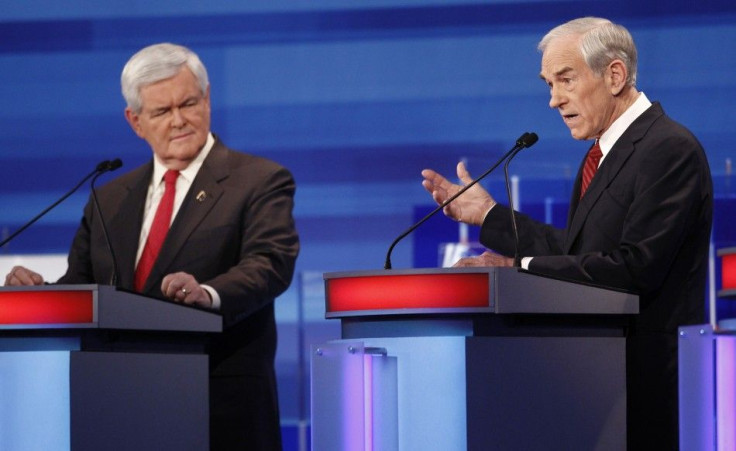Newt Gingrich News: Are His 15 Minutes of Fame Over?

Well, that was fast.
Just one month after he overtook Mitt Romney for the lead in the Republican presidential race, Newt Gingrich is already beginning to fade. He still leads by 4.5 percentage points nationally, but that's down from a double-digit lead just last week, and he lost his lead in Iowa on Monday, slipping to third place behind Ron Paul and Romney.
The track of Gingrich's decline is looking similar to Rick Perry, Michele Bachmann and Herman Cain's, Jamie Chandler, a political scientist at Hunter College in New York, told the International Business Times. Given the fickle nature of Republican voters this year, coupled with Gingrich's legislative record and propensity to make inflammatory comments, it's unlikely he'll be able to maintain a lead should the trend continue.
This time last week, Gingrich was still touting himself as the final conservative challenger to Romney and insisting that, unlike the previous flavors of the month, he had staying power because he was a known quantity in the Republican Party.
It wasn't an unreasonable argument. Many political experts agreed, saying that Gingrich would not be hurt as badly by media scrutiny because his past indiscretions were already known, and because voters had decided to weigh his political experience above his personal life.
He's an established figure in the Republican Party and someone who admittedly comes with a great deal of history and even some baggage, but at the same time, there's no question about his experience and his familiarity with the issues the country is grappling with, Costas Panagopoulos, a political scientist at Fordham University in New York, told IBTimes earlier this month. I think that has the potential to take him a long way.
And Gingrich certainly is a known quantity. But it has become clear that that doesn't mean much if people don't like what they know -- and it seems that when it came to Gingrich, they didn't.
When Herman Cain's campaign began to collapse in November, many people were attracted to Gingrich as an alternative because they remembered him as the architect of the 1994 Republican Revolution, which remains one of the party's shining moments. It was easy, at first, to gloss over the chaos that came afterward, when he had to deal with the difficulties of bipartisan governing and lost badly in a budget battle with President Bill Clinton.
But as Gingrich came under the harsh glare of the media spotlight, the less savory aspects of his past that many of his supporters had forgotten or set aside became increasingly difficult to ignore, as did the growing chorus of former congressional colleagues criticizing his leadership skills.
And so it seems Gingrich's 15 minutes of fame are coming to an end. Now it's Ron Paul's turn to face off against Romney.
Let the games begin.
© Copyright IBTimes 2024. All rights reserved.











